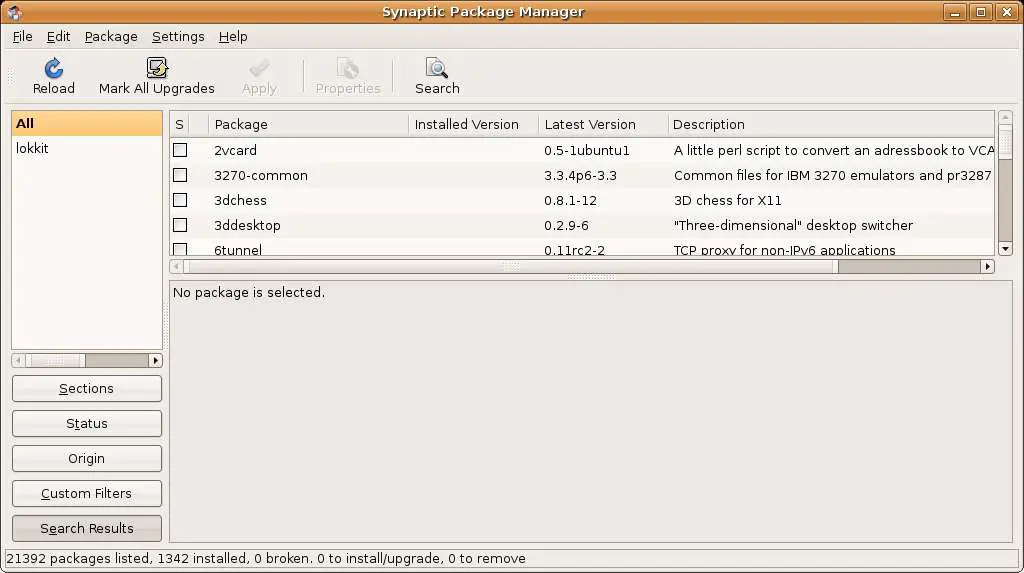Difference between revisions of "Basic Ubuntu Linux Firewall Configuration"
| Line 15: | Line 15: | ||
To launch the Synaptic Package Manager click on the ''System'' menu on the desktop and select "Synaptic Package Manager'' from the ''Administration'' sub-menu. Enter your password when prompted to do so. The Synaptic Package Manager will appear as follows: | To launch the Synaptic Package Manager click on the ''System'' menu on the desktop and select "Synaptic Package Manager'' from the ''Administration'' sub-menu. Enter your password when prompted to do so. The Synaptic Package Manager will appear as follows: | ||
| − | [[Image: | + | [[Image:ubuntu_linux_synaptic_package_manager.jpg]] |
Revision as of 14:15, 25 June 2007
A firewall is a vital component in protecting a computer system, or network of computers from external attack (typically from an internet connection). Any computer connected directly to an internet connection must run a firewall to protect against malicious activity. Similarly, any internal network must have some form of firewall between it and an external internet connection.
This chapter will cover the steps necessary to configure an Ubuntu Linux firewall.
Ubuntu Linux Firewall Options
Ubuntu Linux provides two firewall configuration options. The first is a basic yet effective and easy to use firewall configuration system called lokkit. Another, more advanced, option is called GuardDog.
In this chapter we will explore lokkit and in the next chapter (Installing and Configuring a GaurdDog Firwewall on Ubuntu) we will look at the GaurdDog firewall in more detail.
Configuring a Basic Ubuntu Linux Firewall
The lokkit tool is not installed by default on Ubuntu Linux so before we can begin to configure a firewall we first need to install the appropriate package. There are two ways to do this, either using the Linux command-line, or using the Synaptic Package Manager. We will begin by looking at the Synaptic Package Manager method.
To launch the Synaptic Package Manager click on the System menu on the desktop and select "Synaptic Package Manager from the Administration sub-menu. Enter your password when prompted to do so. The Synaptic Package Manager will appear as follows:



